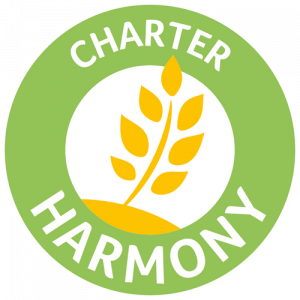Harmony Charter

A scheme from mega-brand Mondelez to reduce pesticides and fertilisers for wheat crops – hasn’t updated their site since 2017 and now promoting a relaunch
People
N/A
Environment
4
Animals
2
Independently
Verified
What we say
The aim is to reduce pesticide and water use as well as improve biodiversity specifically for wheat – in exchange for compliance, farmers are paid a premium, but as usual for these brand-schemes, its vague and often just ‘best endeavours’.
The biodiversity pledge comes down to setting 3% of wheat land to be planted for pollinators, or by implementing an inter-season crop. To meet charter compliance they also need to ‘collaborate with a beekeer’ or ‘implement an insect hotel’ adjacent to a wheat field. Pretty laughable really. The full details of the charter shows its a very low level of effort.
They are independently assessed by external auditors but don’t actually share that data on their website.
The scheme has been around since 2008 and has over 1600 farmers*, but their official site refers to this as a ‘pilot scheme’ and that the ‘next stage’ would be a review in 2017. Well, that’s over 6 years ago and the official website doesn’t seem to have any new information.
In February 2023 they announced a relaunch of the ‘Harmony Ambition 2030’ where they say they’ll step up the biodiversity requirements, create an academy to teach farmers and run basically some marketing to show that ‘more sustainable wheat is better wheat’.
Label Mouse suggests they should put some money into keeping their website up to date.
* or 1,360 if you believe the latest press release over the official website.
What they say
Minimise the use of fertilisers and pesticides by selecting wheat seeds that are more resilient.
Avoid unnecessary use of pesticides and fertilisers – but if they’re necessary, justify that use.
Reduce carbon emissions.
Preserve water.
Mondelez say 91% of their European biscuit production is using Harmony wheat, with ambition to make this 100% by 2022…
